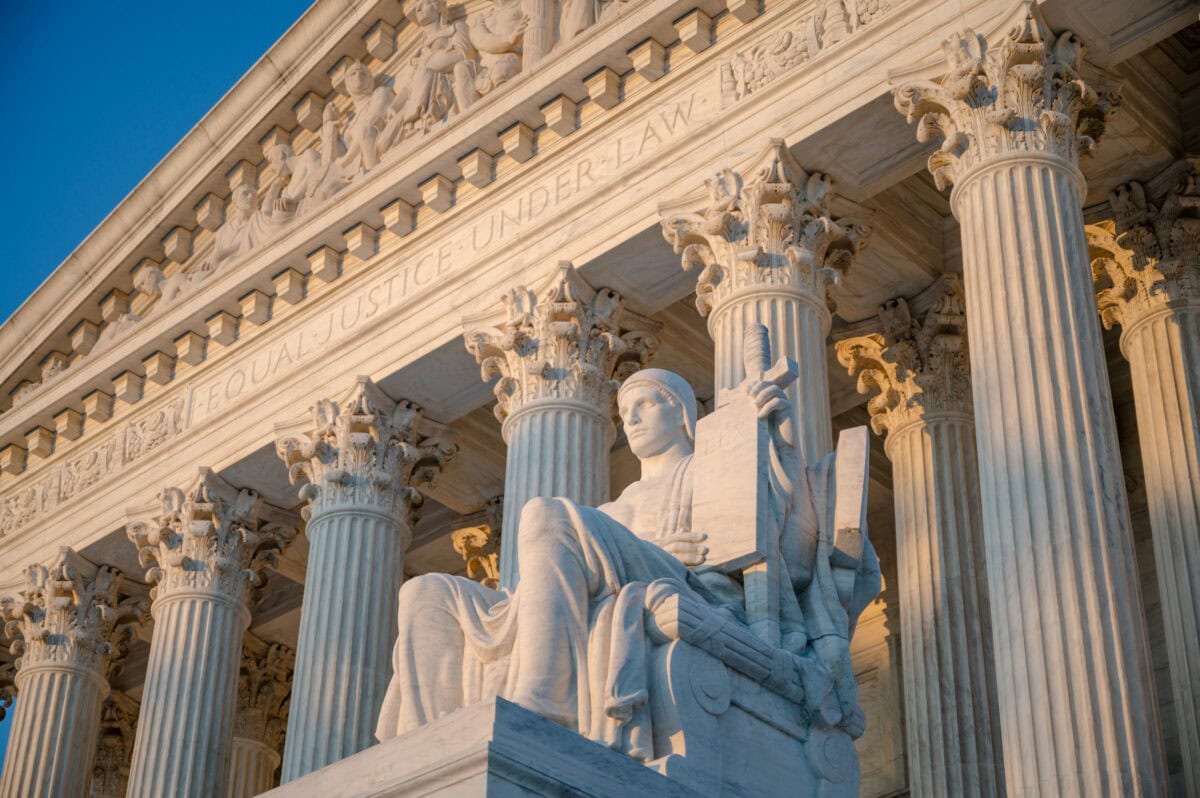Sixth Circuit Cautions Against Evasion of Loper Bright Based On Broad Statutory Language Alone
By
| February 10, 2025
In Moctezuma-Reyes v. Garland the Sixth Circuit was tasked with interpreting the meaning of the statutory phrase “exceptional and extremely unusual hardship” in assessing Mr. Moctezuma-Reyes’s petition for review of an immigration judge’s denial of his application for cancellation of his removal from the United States, which the Board of Immigration affirmed.
The Court expressed sympathy for Mr. Moctezuma-Reyes’s circumstances, describing him as “a devout Catholic, a loving father as well as husband, and a godfather to six children,” noting that the immigration judge described him as “‘a good person, a good father, a good husband.’” The Court nonetheless found that his removal would not cause “exceptional and extremely unusual hardship” and denied his petition because the law, as written, required that result. After all, courts are not supposed to make policy choices—that is Congress’s job.
But whatever one thinks about that outcome as a policy matter, what makes this decision notable is the Sixth Circuit’s thoughtful implementation of Loper Bright’s core teaching: “[c]ourts must exercise their independent judgment in deciding whether an agency has acted within its statutory authority” and may no longer “defer to an agency interpretation of the law simply because a statute is ambiguous.”
As the panel opinion, authored by Judge Thapar, noted: “[E]ven with Loper Bright now on the books, one might claim that we should nevertheless defer to the BIA on the legal meaning of ‘exceptional and extremely unusual hardship.’ Why? Because the Supreme Court has instructed us that occasionally the best reading of a particular statute will reveal that Congress expressly and explicitly delegated discretion to the agency—and that we must defer to the agency’s exercise of its discretion.” But as the panel opinion explained, “express language conferring discretion on the agency is critical: If broad language alone triggered deference, we’d unwittingly return to construing less than precise words as implicit delegations to the agency that warrant deference. That can’t be right. The case that declared ‘Chevron is overruled’ didn’t quietly reinstitute it.” And as the panel opinion observed, while “there are rare circumstances where a court may have to defer to an agency,” courts “must be sure. The actual delegation of authority to the agency must be clear: imprecise wording alone won’t cut it. Chevron is no more.” This means that before deferring to an agency’s judgment on a statute’s meaning, a court “must find that the statute expressly confers discretion on the agency.” In other words, under Loper Bright, onlystatutes with “express language conferring discretion on the agency to interpret a broad standard” require courts to undertake a three-step inquiry to determine whether a form of deference is warranted.
Applying those principles, the panel opinion concluded that, although broadly worded, the statute’s “‘exceptional and extremely unusual hardship’ standard does not qualify for this sort of deference,” because it was not coupled with “language vesting the BIA with discretion to determine the meaning of” that phrase. As the panel observed, “the actual statutes that Loper Bright cited as examples of delegations that may call for deference don’t only have broad language. They pair that language with words that expressly empower the agency to exercise judgment.” That analysis is faithful to and properly implements Loper Bright and should be followed by other courts: subject to constitutional limits, only express—as opposed to implicit—delegations of interpretive power to agencies should be eligible for the form of deference contemplated by Loper Bright.
Judge Stranch concurred in the judgment, arguing that “Loper Bright does not give this court the power or the responsibility to define ‘exceptional and extremely unusual hardship’ from new cloth—it instead teaches that reinterpreting a statute should be undertaken only with great caution.” The panel opinion ably countered: “But Loper Bright instructed us to carry out our judicial duty to say what the law is, even when agencies are involved. That’s what we’ve done here.” Let us hope other courts follow the panel opinion’s lead.


